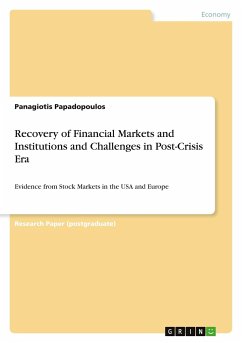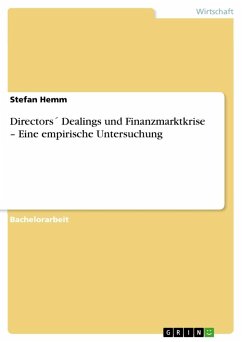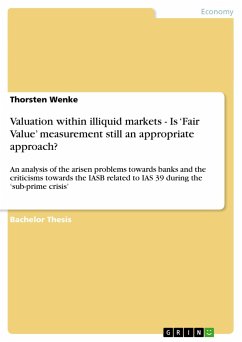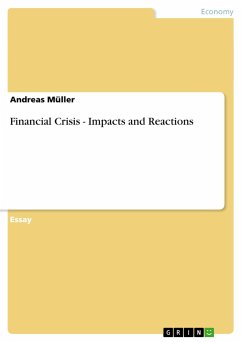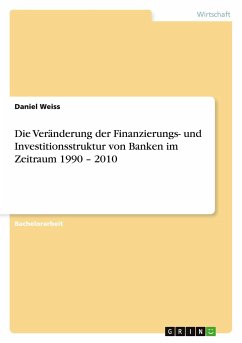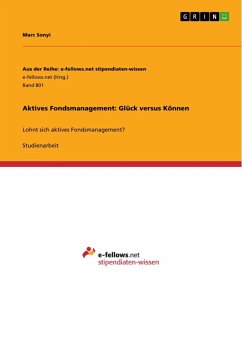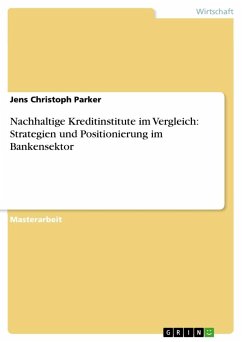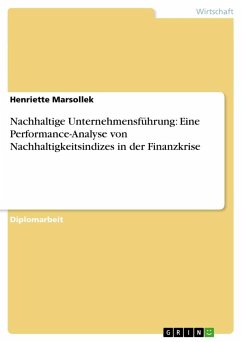
Nachhaltige Unternehmensführung: Eine Performance-Analyse von Nachhaltigkeitsindizes in der Finanzkrise

PAYBACK Punkte
0 °P sammeln!
Diplomarbeit aus dem Jahr 2010 im Fachbereich BWL - Industriebetriebslehre, Note: 1,0, Europa-Universität Viadrina Frankfurt (Oder) (Wirtschaftswissenschaftliche Fakultät), Sprache: Deutsch, Anmerkungen: ausgezeichnet mit dem 1. Platz des Wirtschaftsjuniorenpreises 2011 an der Wirtschaftswissenschaftlichen Fakultät der Europa-Universität Viadrina , Abstract: Recently, the global economy has experienced a major financial crisis that has affected international companies and their stakeholders around the globe. Meanwhile, the climate change phenomenon has received wide international recogniti...
Diplomarbeit aus dem Jahr 2010 im Fachbereich BWL - Industriebetriebslehre, Note: 1,0, Europa-Universität Viadrina Frankfurt (Oder) (Wirtschaftswissenschaftliche Fakultät), Sprache: Deutsch, Anmerkungen: ausgezeichnet mit dem 1. Platz des Wirtschaftsjuniorenpreises 2011 an der Wirtschaftswissenschaftlichen Fakultät der Europa-Universität Viadrina , Abstract: Recently, the global economy has experienced a major financial crisis that has affected international companies and their stakeholders around the globe. Meanwhile, the climate change phenomenon has received wide international recognition but notlead to major national policy initiatives as were observed with the financial crisis. Nevertheless, different stakeholders are increasingly demanding companies to behave in a sustainable manner. Consequently, an increasing number of companies with sustainability strategies are benefitting from value creating stakeholder effects. Hence, the aim of this paper is to analyse the possible benefits of corporate sustainability in times of the financial crisis. An analysis of the Dow Jones Sustainability Indexes of the regions World and Europe in the financial crisis of 2007-2009 is conductedto provide information on the relative performance of the sustainability indexes compared to a market benchmark. As a result, both sustainability indexes achieve a higher financial performance measure (Omega ratio) than their benchmark index. Thus, a positive relation between corporate sustainability and financial performance in times of the crisis can be observed. This relationship is further qualitatively examined by the model of Epstein & Roy (2001) that relates sustainability performance via stakeholder reactions to financial performance. The framework provides several hints for causes of the observed superior performance of the sustainability indexes, such as reduced operational risks, a stable reputation and human capital value, and an improved access to capital. Therefore, the assessment of the relationship of corporate sustainability and financial performance via defined indicators is recommended to managers, since it can improve performance robustness in turbulent economic times and increase economic success in the long run.





